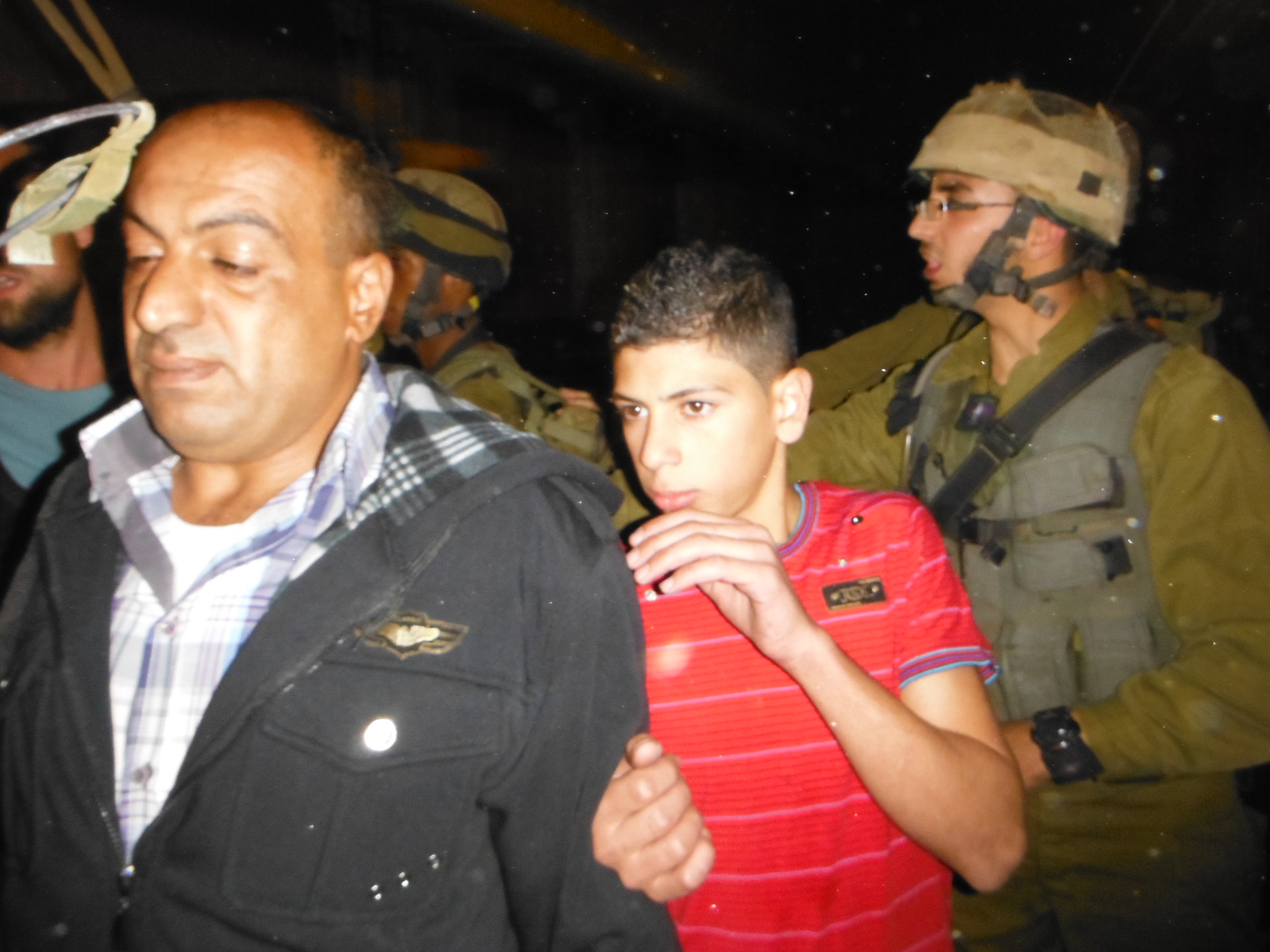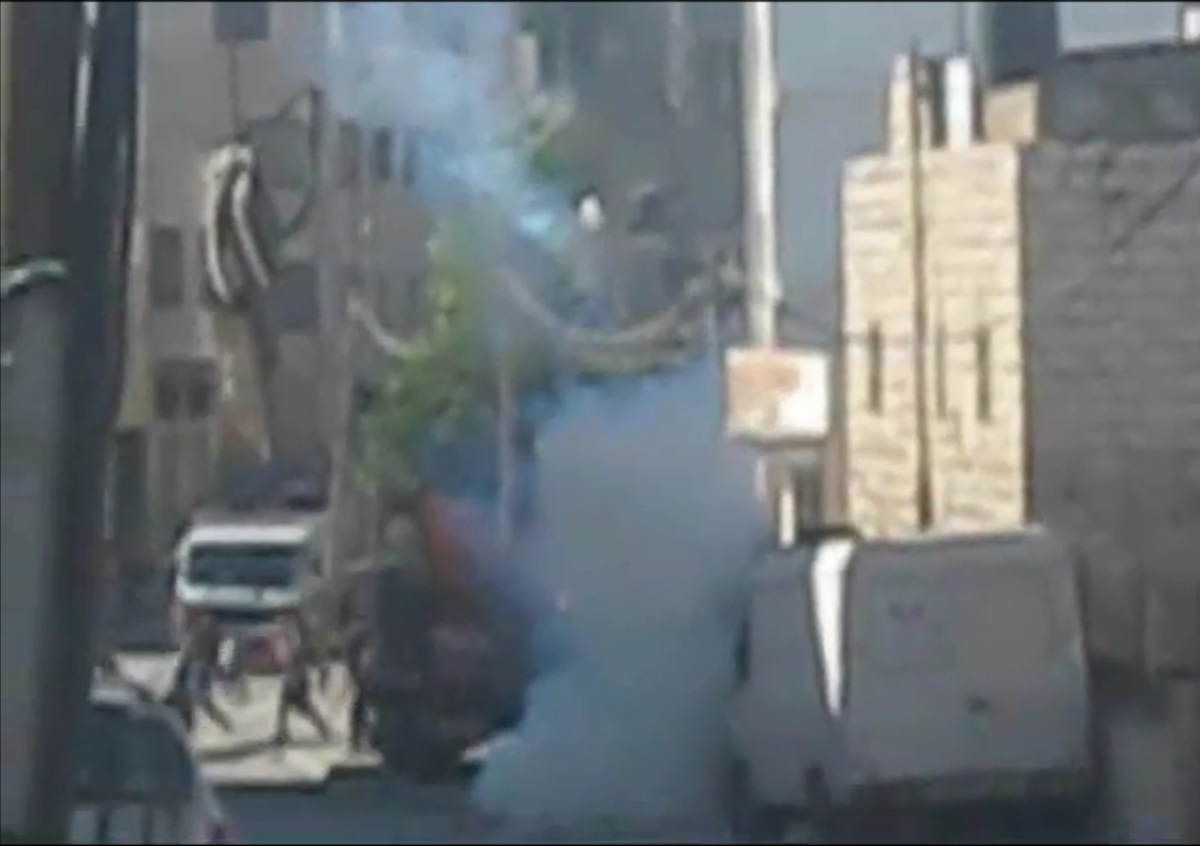Tag: Children
-
Photos: Gaza children hold march and candlelight vigil to free Ahmad Sa’adat
19th October 2013 | International Solidarity Movement, Gaza Team | Gaza, Occupied Palestine Dozens of Palestinian children marched in Gaza Friday evening before holding a candlelight vigil outside the Palestinian Legislative Council (PLC). The event was the first in a global week of action to free Ahmad Sa’adat and other Palestinian prisoners held by Israel. Sa’adat, an…
-
Updated: Family home ransacked and young teenager detained during Eid
16th October 2013 | International Solidarity Movement, Khalil Team | Hebron, Occupied Palestine Yesterday, 15th October, a young teenager visiting his family was detained from inside a Palestinian home after it was forcibly entered and searched by armed Israeli soldiers on the evening of Eid. A Palestinian family’s home was entered on the evening of…
-
VIDEO: Israeli soldiers fire tear gas canisters and stun grenades at school children
1st October 2013 | International Solidarity Movement, Khalil Team | Hebron, Occupied Palestine This morning, Tuesday 1st October, Israeli soldiers fired two tear gas canisters and four stun grenades at children on their way to school. In this case, a few children threw stones and pebbles at Israeli forces as the soldiers stood watching them…



